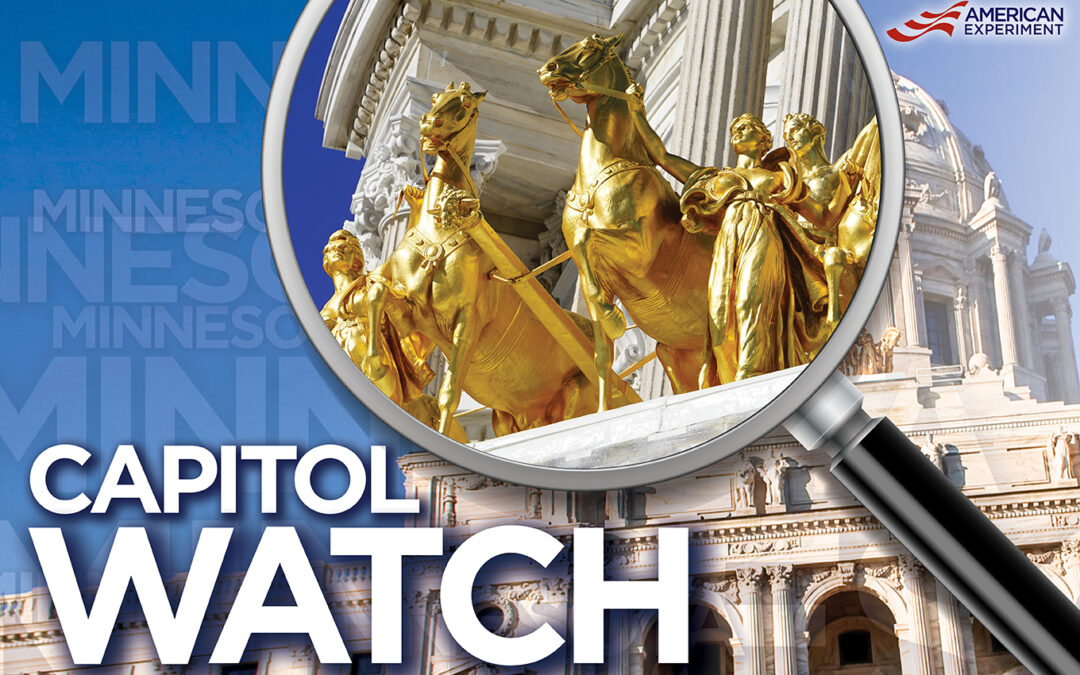There used to be a longstanding tradition of election policy bills requiring bipartisan support in order to pass. Because election law by definition is so fraught with partisan politics, it was generally understood by governors from Arne Carlson to Mark Dayton that bills changing the way legislators are elected must have bipartisan support. Even Gov. Tim Walz adhered to this custom UNTIL he was given a Democratic House and Senate. Then everything changed and we are left with two partisan election bills in a row.
The 2024 version has some dubious provisions.
Homeless voting by location, not address
The election bill is making it easier for homeless people to vote by eliminating that pesky and unnecessary practice of requiring an address before registering and voting. New language simply requires a “location” that the voter can point to on a map with the assistance of an election judge.
Where do you live?
I live in a tent down by the river.
Can you point to it on this map?
It’s right there.
How long have you lived there?
A few weeks.
Is this your permanent address?
I guess, until the city arrives with front end loaders to clear us out.
Cool. Sign here, happy voting!
After a homeless person votes by marking an X on the map, how can a county attorney comply with election law and mail them a post card to verify their eligibility? This is the kind of election law change that adds to the skepticism of thousands of Minnesotans who no longer trust the voting system.
Self-styled civil rights warriors pass the Minnesota Voting Rights Act
House and Senate Democrats are very proud of the insertion of what they call the Voting Rights Act of Minnesota into the election bill. The language is a reaction to a federal court throwing out the private right to sue under the Federal Voting Rights Act of 1965. The Minnesota bill is a solution in search of a problem, with the stated goal of “prohibiting state voting standards that would deny or limit any citizen’s right to vote based on their race, color or language.”
Rep. Harry Niska (R-Ramsey) pointed out on the House floor that all but one of the examples cited in the official legislative findings used to justify the bill happened before 1900. These DFL legislators act like this language is all that separates us from poll taxes and gerrymandered election maps that pack minorities into voting districts. It’s a non-issue in 2024-Minnesota.
Rep. Niska warned the House that this language will lead to what he calls “sue and settle policy making,” where both sides (and the judge) share the same values and interests. We saw this in the summer of 2020 when friendly plaintiffs sued Secretary of State Steve Simon and he graciously agreed to settle the suit and remove the signature requirement for absentee ballots. (The next time someone asks you for proof of a stolen election, remind them of this policy/legal abuse using the threat of COVID to weaken election laws).
Ranked Choice voting is back
As we wrote last year, the failure of Ranked Choice Voting (RCV) was one of the few victories of the 2023 session. As predicted, it was a short-lived victory. This misguided policy is back with a vengeance as it is inserted into a budget billthat funds the Secretary of State’s office. In fact, they are setting aside $200,000 to help the SOS and local governments administer the system as local governments will be allowed (not compelled) to use RCV in their local elections (city, county and school district).
As Bill Glahn wrote last year, RCV does not produce the results promised by the authors. It confuses voters, leads to lower voter turnout, and pushes candidates to the extremes in order to win second choice votes of the most extreme (and least popular) candidates. RCV is also very unpopular with Minnesota voters as our February 2023 Thinking Minnesota poll found very tepid support for the concept. Less than half of Minnesotans (49%) are familiar with ranked choice voting, and only 34% said they supported the practice.
School board elections “fix”
Democratic majorities are also reacting to the uptick in interest in school board governance. For years, school board elections were sleepy affairs dominated by the education cartel. Candidates endorsed by the teachers’ union ran on slates and generally won without too much opposition. Then in 2022, parent-backed candidates trained and supported by the Minnesota Parents Alliance upset the applecart by winning seats on local school boards. Once there, they immediately challenged the status quo.
The DFL election bill includes language that eliminates the need for a special election if a school board vacancy occurs less than two years prior to the term’s expiration. This gives the current school board the power to appoint members without having to schedule those irritating elections where parent-backed candidates might win. Rep. Dean Urdahl (R-Grove City) successfully shamed Democrats to support his amendment that won’t allow school boards to remove a member “for cause” and then vote to replace them without an election. A small victory, but the target remains on the backs of parent-backed school board candidates across the state.
The election bills have passed the House and Senate and are headed to a conference committee to work out some small differences. Maybe someone in the press will ask Gov. Walz about his reversal on bipartisan election bills at the bill signing. (I crack myself up!)

